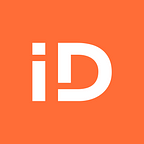Digital Identity Newsletter, September 2019 (#07)
More than half a million Rohingya in Bangladesh get ID cards for first time: UN refugee agency
More than half a million Rohingya refugees from Myanmar have been registered with biometric IDs in a joint registration exercise by the Bangladesh authorities and UNHCR, the UN Refugee Agency. On average, 5,000 refugees are registered daily, at seven different sites in Cox’s Bazar.
The identity card will ensure the accuracy of data on refugees in Bangladesh, giving national authorities and humanitarian partners a better understanding of the population and their needs.
UN Refugee Agency (UNHCR) spokesperson Andrej Mahecic told journalists in Geneva stated that “Most of these people are stateless and most of these people have not had any form of identification document, so for the vast majority of the Rohingya refugees, this is the first ID, a first proof of identity that they have.”
Read more at UN News.
Inclusive and Trusted Digital ID Can Unlock Opportunities for the World’s Most Vulnerable
Who are you? How old are you? Where do you live? Identity can have many interpretations. Within modern societies — where people often interact with others they do not personally know — the ability to provide trusted proof of your identity is essential to daily life. The type of IDs that are needed for basic transactions vary from country to country, but in general birth certificates, national IDs, and similar documents, such as passports and drivers’ licenses, tend to be among the most common IDs or credentials used for official purposes.
Read more at Worldbank.org.
Sierra Leone gears up for Africa’s first blockchain citizens digital identity
On Wednesday, 21 August 2019, president Julius Maada Bio of Sierra Leone unveiled Sierra Leone’s National Digital Identity Platform, making it the first such Blockchain national identification system in Africa.
At the Seventy-third Session of the UN General Assembly last year in New York, the President announced a partnership with the UN and KIVA, a US-based financial services international non-profit organisation, to launch a bold new initiative designed to give the country’s seven million citizens access to financial services. “Today, less than one year after, I am pleased to announce that we have accomplished that objective. My Government has developed a National Digital Identity Platform (NDIP). I am informed, and I announce with pride, that this is Africa’s first Blockchain and Decentralised National Digital Identity System”, he said, adding that the technology would radically change Sierra Leone’s financial inclusion landscape and make it possible to access and deliver economic and other opportunities to citizens.
Read more at Sierra Leone Telegraph.
Yemen’s Houthis, WFP reach deal to resume food relief
The World Food Program (WFP) and Yemen’s Houthi rebels have reached an agreement to resume the delivery of food aid to rebel-controlled parts of the war-torn country.
Due to the data control issues, the Houthi rebel leadership pulled support from biometric registration and the UN agency was forced to suspend aid deliveries to Sanaa in June.
Approximately 850,000 people were affected by the partial suspension of aid according to the UN agency.
Read more at Aljazeera.
Digital ID in Africa this week: Nigeria extends biometric registration, Kenyan groups call for scrutiny
With the biggest digital ID job to do in Africa in terms of population size, Nigeria dominates the identity agenda this week. The country plans to use biometric registration for flood planning and emergency responses, will bring in compulsory e-Migrant registration for foreigners and is seeing digital ID as a way toward reaching Strategic Development Goals. In Kenya, advocacy groups are increasing their outreach work to encourage more people to speak out against the Huduma Namba legislation as the bill is set to go before parliament. In Rwanda, people may soon be able to ditch their health insurance cards and simply present themselves at a hospital for biometric patient verification.
Read more at Biometric Update.
Giving people a ‘digital identity’ could leave them vulnerable to discrimination, experts warn
Global efforts to give millions of people missing key paper documents such as a birth certificates a digital identity could leave them vulnerable to persecution or discrimination, a new study warns.
Work is underway to use digital technology so refugees and others lacking vital legal papers can have access to services such as health and education. But this could also provide a new way for ethnic minorities to be discriminated against and marginalised by officials and governments if safeguards are not in place, according to new research.
The World Bank estimates that over one billion people currently lack official identity documents — either because they never had it, or because they have lost it — and the United Nations Sustainable Development Goals include the aim to provide legal identity for all by 2030.
Read more at EurekAlert.
